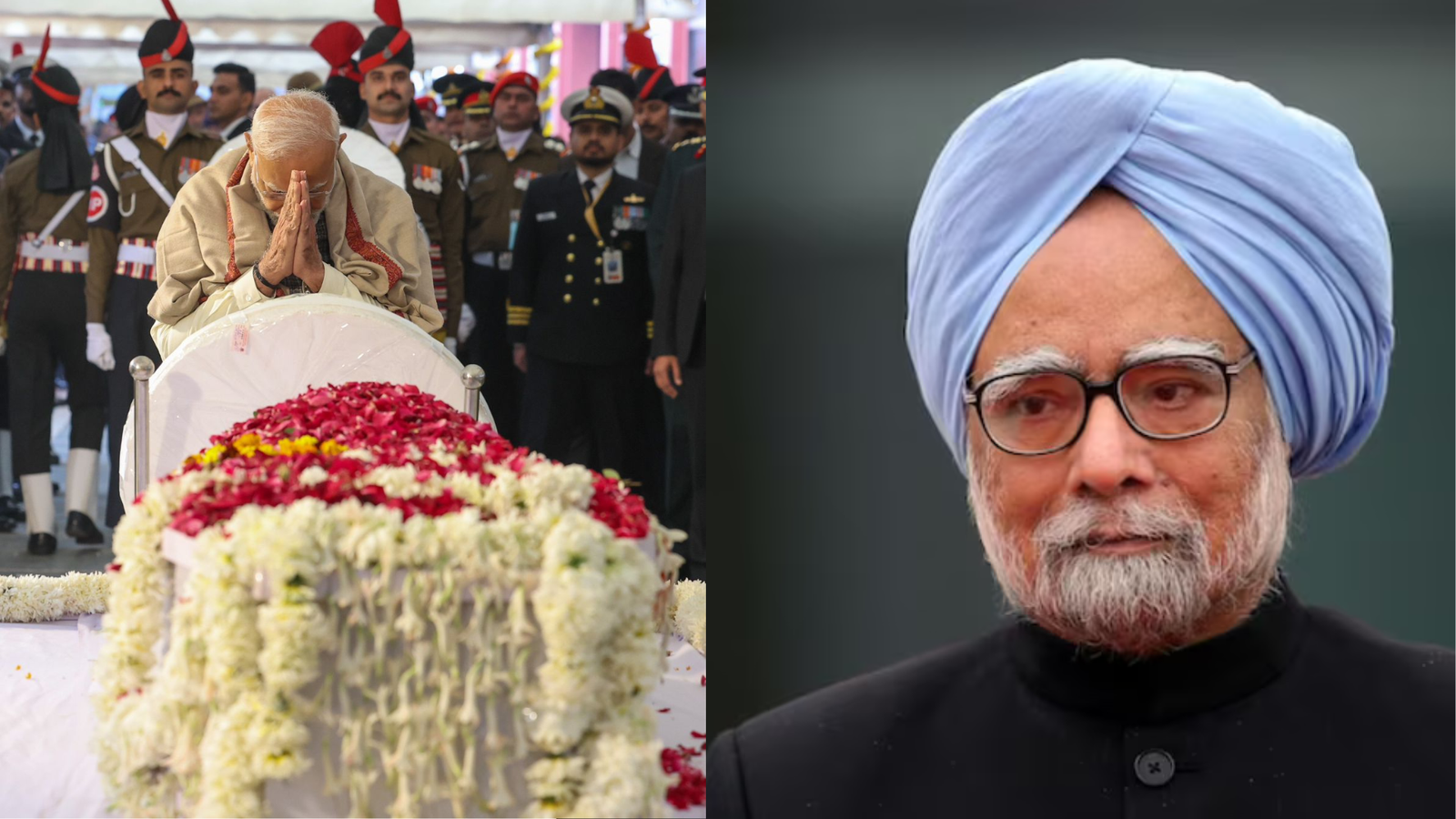NEW DELHI: India bid an emotional farewell to former Prime Minister Dr. Manmohan Singh, who passed away on December 26.
The last rites were performed today, December 28, at the Nigambodh Ghat crematorium, with a host of prominent leaders in attendance to pay their respects.
Prime Minister Narendra Modi, the Gandhi family, and leaders from across the political spectrum were present at the solemn ceremony on Saturday, underscoring the deep respect held for Dr. Singh’s contributions to the nation.
Congress leader Udit Raj reflected on Dr. Singh’s legacy, sharing personal anecdotes and calling for a memorial in the Rajghat Complex.
He highlighted Dr. Singh’s humility and his deep commitment to intellectual discourse and supporting the underprivileged.
Raj expressed dissatisfaction with the decision to perform the cremation at Nigambodh Ghat instead of a location reserved for a memorial. “It would have been better if the cremation had taken place at the location where his memorial is planned to be built. This tradition has been broken, and favoritism has been shown. Those responsible for this will face consequences sooner or later, and perhaps they, too, will experience such bias at some point, just as the opposition has now,” he remarked.
ALSO READ: No change in Manmohan Singh’s behavior, even when I opposed him in public: Yogendra Yadav
Attacking the BJP and Prime Minister Narendra Modi’s visit, he said, “Such gestures are a formality between ruling parties and the opposition. We, too, had shown similar respect during Atal Bihari Vajpayee’s time. It is often done where there is political benefit, as everyone seeks to expand their reach.”
He reiterated the Congress’s demand, saying, “As for the Congress, their demand is clear: Dr. Singh’s memorial should be built in the Rajghat Complex, where Vajpayee’s memorial is also located.”
He also recalled personal interactions with the late leader, including a meeting in 2003 when Dr. Singh, despite a busy schedule, waited patiently to engage in a discussion.
“In 2003, I had sought a meeting with him. Though I arrived late, he waited for me despite having other commitments, saying, ‘I was waiting for you as I had somewhere to go after this.’ We had an intellectual discussion, something common in our conversations. Later, I expressed my wish to become a member of the India Habitat Centre, where he was the chairperson, and he recommended me.”
Another memorable moment was around 2017–18 when a documentary film was being made about me. The director asked if Dr. Singh could provide a soundbite for the film. When we approached him, he graciously agreed, spoke highly of me, and shared thoughts about me that I truly felt I didn’t deserve,” Raj said.
Raj also criticized the portrayal of Dr. Singh in The Accidental Prime Minister, calling it an unfair representation of his legacy.
“A new film should be made that portrays him in a deserving light, highlighting his true contributions and legacy,” he said.
Delhi Pradesh Congress Committee (DPCC) President Devender Yadav paid a heartfelt tribute, emphasizing Dr. Singh’s remarkable legacy.
“He was a remarkable individual who led the country during very challenging times. He guided not just himself but the entire nation out of an economic crisis and took India to a position where it holds a distinct name on the global stage today,” Yadav said.
He also advocated for a memorial to honor Dr. Singh’s contributions. “A memorial for such a personality, who was an educationist, an economist, and who rose from a humble background to become the Prime Minister, is undoubtedly well-deserved,” he added.
Dr. Manmohan Singh served as the Prime Minister of India from 2004 to 2014, guiding the nation through a transformative period of economic growth and global recognition.
His passing marks the end of an era, leaving behind a legacy of wisdom, humility, and resilience that will continue to inspire generations.

